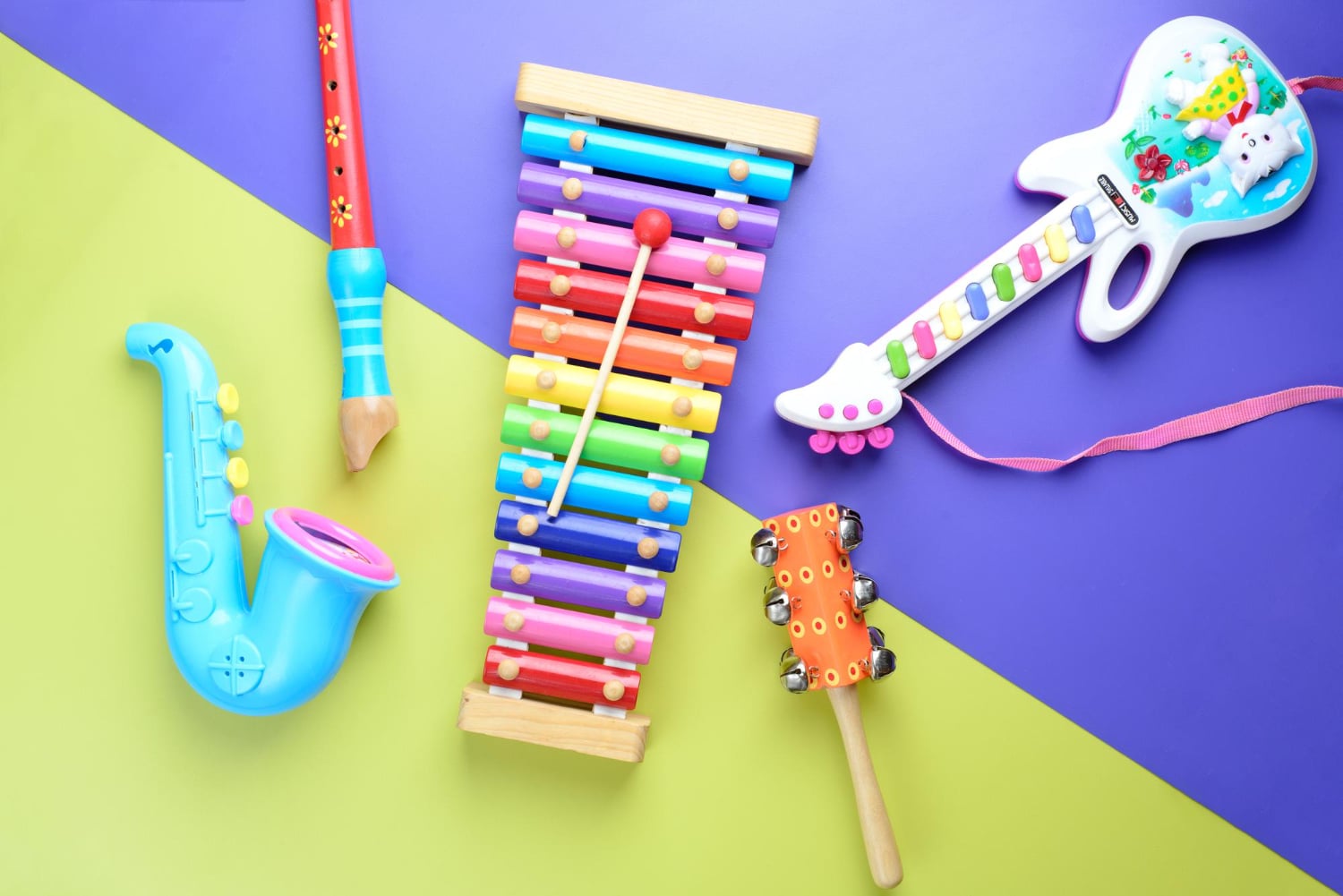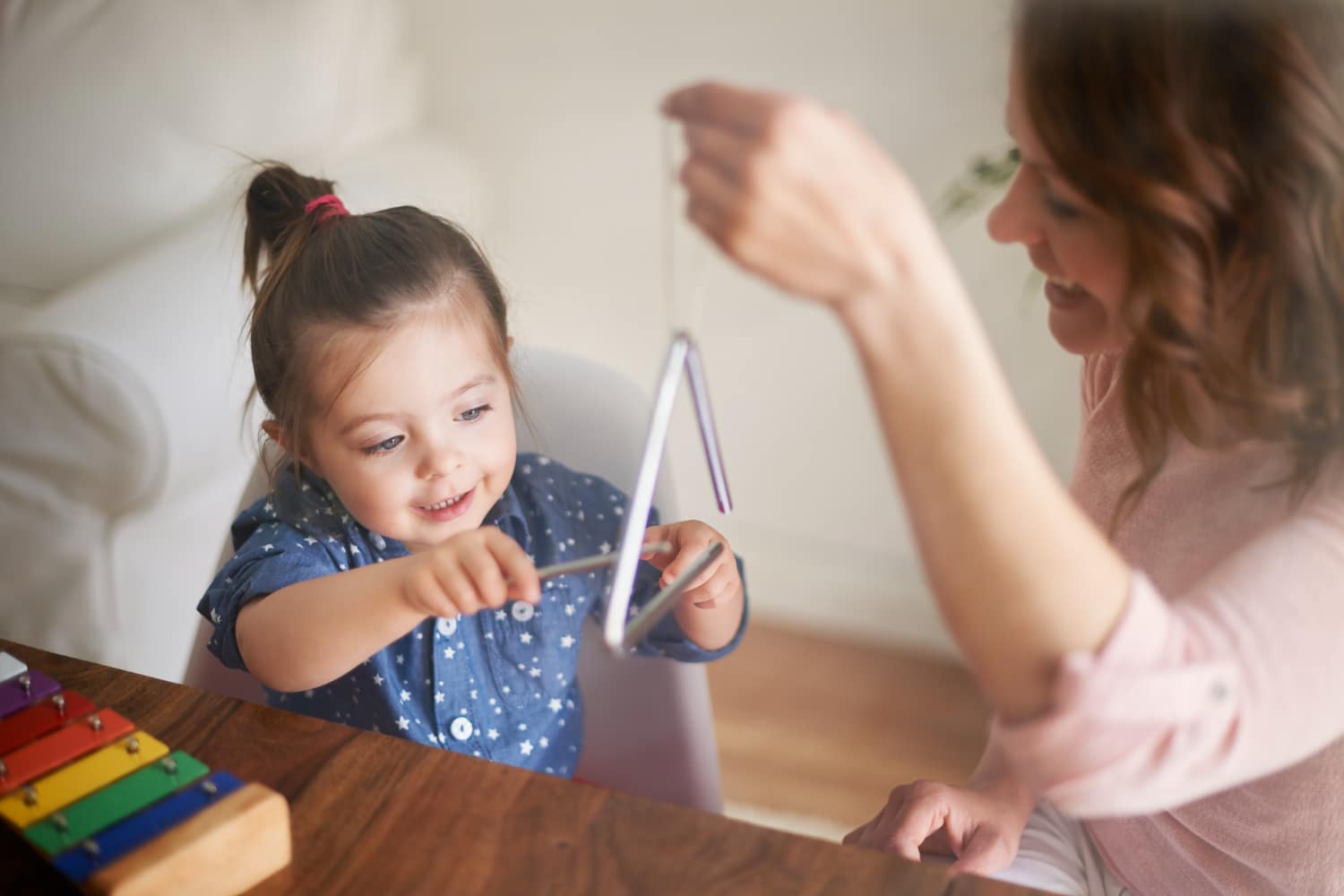Music Therapy is about harnessing a motivating activity to encourage engagement and participation in children.
Because music stimulates and activates many areas of the brain, it can support healthy childhood brain development and encourage functions such as listening, speech development, attention, memory, and even emotional regulation.
Music Therapy can involve the use of musical instruments which can help promote healthy fine and gross motor functions, as well as coordination.


Music Therapy can address a wide variety of goals. In essence, music is used as a motivator to achieve a non-music related goal.
It can be used to address a range of concerns including:
Music Therapy can occur in individual or group settings.
We support fine motor strength through playing percussion instruments, we foster communication through song-singing, and we encourage regulation through movement activities.
We may also support children’s routines by structuring a person’s day through song: for example, songs about dressing ourselves, making ourselves food, or getting ready to leave the house.


Parents are encouraged to actively participate in sessions with the Music Therapist, and will then be provided with activities to continue at home to best support their child’s communication, motor, emotional, and sensory goals.
Music Therapists are allied health professionals who use planned & intentional music to work on therapy goals.
THINKING SKILLS& ATTENTION:
SOCIAL:
EMOTIONAL:
SPEECH & LANGUAGE:
MOTOR SKILLS:


WHO CAN BENEFIT?
Music is a highly motivating & powerful tool to help children who experience emotional, social, cognitive, and mental health challenges.

"*" indicates required fields